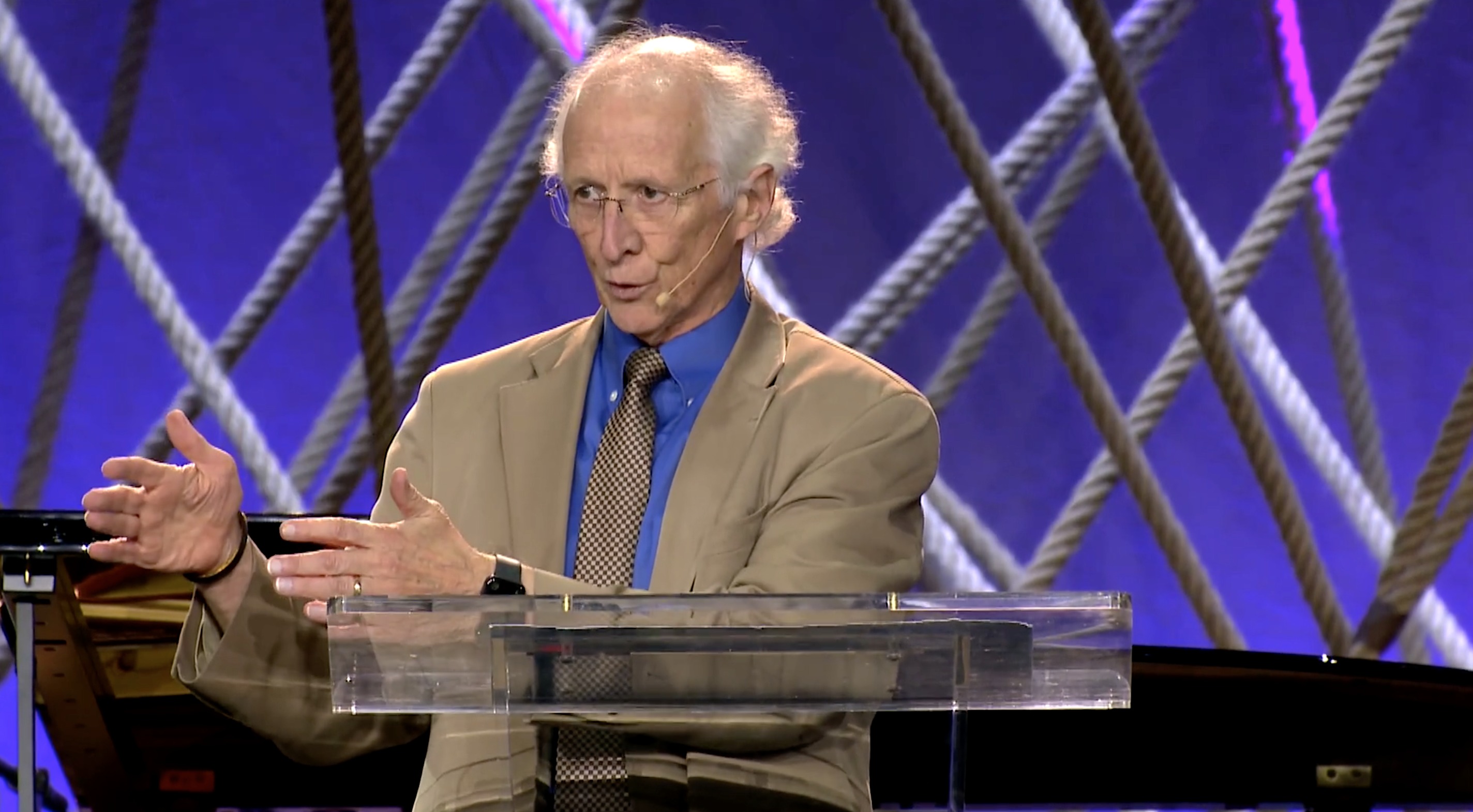Pastor and author John Piper has offered advice and encouragement for parents struggling with their children’s poor choices — including gender dysphoria and the rejection of Christianity — and weighed in on whether such behavior is inherited.
In a recent episode of “Ask Pastor John” shared on Piper’s Desiring God website, Piper addressed an email from a father struggling with his children’s paths, particularly in relation to gender dysphoria.
“Pastor John, my wife and I have four sons, ranging from 20 to 8. We recently found out our 20- and 15-year-olds both claim to suffer from so-called ‘gender dysphoria.’ The 20-year-old is walking with the Lord and knows it’s wrong, fighting his temptations, and trying to dwell in God for strength, and attends a solid, Bible-believing church. But he’s in college two hours away, and we are still worried for him,” the letter read, in part.
“Our 15-year-old is not a believer … we feel so broken and so alone and so helpless in this season. What do we do to fight against the despair we face every day as failed parents? How did we fail them?”
Piper began by acknowledging the pervasive fear among parents about their children inheriting or repeating their sins, a concern he believes is shared across various Christian families. He highlighted several scenarios that fuel parental anxieties, such as the impact of being born out of wedlock, growing up in dysfunctional homes or the fear of having prodigal children.
The 78-year-old chancellor of Bethlehem College and Seminary in Minneapolis, Minnesota, offered a comprehensive list of 10 suggestions for parents grappling with their children’s move away from Christian principles.
Piper encouraged parents to “grieve with hope,” advising them to grieve deeply for their children’s struggles but with the hope rooted in God’s sovereign goodness; “look to the God of the impossible,” reminding parents that what seems impossible for humans is possible with God; “Do not assume fault,” advising against assuming parental imperfection as the decisive factor in a child’s disobedience; “love on God’s terms,” emphasizing loving children according to God’s standards of truth and righteousness.
The Don’t Waste Your Life author encouraged parents to “speak truth to your child,” advocating for clear communication of beliefs and truths to children, “communicate your love,” as parents need to show their readiness to sacrifice everything for their children’s well-being, “pray without ceasing,” reminding parents of the power of persistent prayer and trust in God’s mercy, and “discern communication” — discerning how often to address sensitive issues with the child.
The pastor also stressed the importance of making “the Gospel plain,” emphasizing the importance of periodically making the Gospel clear to the child, especially to those who have strayed. He also encouraged parents to “press on with indomitable joy,” advising them to live a joyful life despite challenges, denying Satan the triumph of seeing them paralyzed by despair.
“Yes, your child needs to see that you are not blithely indifferent to his disobedience. But just as important, he needs to see that Jesus is your supreme treasure and that the solar system of your life does not revolve around your child. He is not the sun in your solar system. Christ is. He doesn’t need you falling apart, retreating in self-pity, pouting. That’s not helpful. He needs you weak and triumphant in Christ,” Piper said.
Piper called for a “tidal wave of grace” to help reunite estranged children with their families and faith.
“So, let’s pray for each other, and may the Lord bring the day when there is a tidal wave of grace that sweeps thousands of precious prodigals into the arms of their parents and of the Lord Jesus,” he concluded.
In recent years, numerous studies have shown young people leaving the church in droves, along with a rise in religious “nones.”
A 2022 report from the Pew Research Center found that by 2070, Christians could make up less than half of the population — and as little as a third. Meanwhile, the so-called nones — or the religiously unaffiliated — could make up close to half of the population. And the percentage of Americans who identify as Muslims, Jews, Hindus, Buddhists and other non-Christian faiths could double.
Piper’s own son, Abraham Piper, became an unbeliever at the age of 19, and today uses his social media to bash Christianity and Evangelical culture. He’s also posted videos on TikTok suggesting that the Bible says having kids isn’t a good idea, offering advice for doubting Evangelical kids who still live with their parents, and Bonkers Bible stories. He also said in one video that memorizing the Bible was not worth it for him.
“Hey, if you’re deconstructing, good for you,” Piper said in one video.
“There are a lot of serious thinkers out there that can help you navigate this stuff,” he continued, “but if you just want to roll your eyes at how [expletive] weird it all was, that’s what I’m here for. Stick around if you want to.”
In an op-ed for The Christian Post weighing in on the trend of young people leaving the faith, Michael Brown, host of the nationally syndicated Line of Fire radio program, contended that “it is the spirit of the age to question God and to mock the Bible, part of a perfect societal storm.”
This “societal storm,” he said, includes the following elements: “1) a superficial, me-first Christianity preached in America for the last generation; 2) the lack of personal experience with God; 3) a dearth of solid discipleship and in-depth knowledge of the Word; 4) a steady stream of leadership scandals; 5) the rise of the new atheism, and with it, the demonizing of the God of the Bible, especially the God of the Old Testament; 6) the ubiquity of the internet, instantly popularizing the latest anti-God statement and turning it into a viral meme; 7) the continued breakdown of the American family; 8) the increasing number of out and proud LGBTQ individuals, many of whom are friends and family members of Christians, causing the latter to question the Bible’s teaching on homosexuality.”
“History teaches us that every generation must have a fresh, personal encounter with God, otherwise apostasy will set in. And that’s where we find ourselves today. What are we going to do about it?” he wrote.








